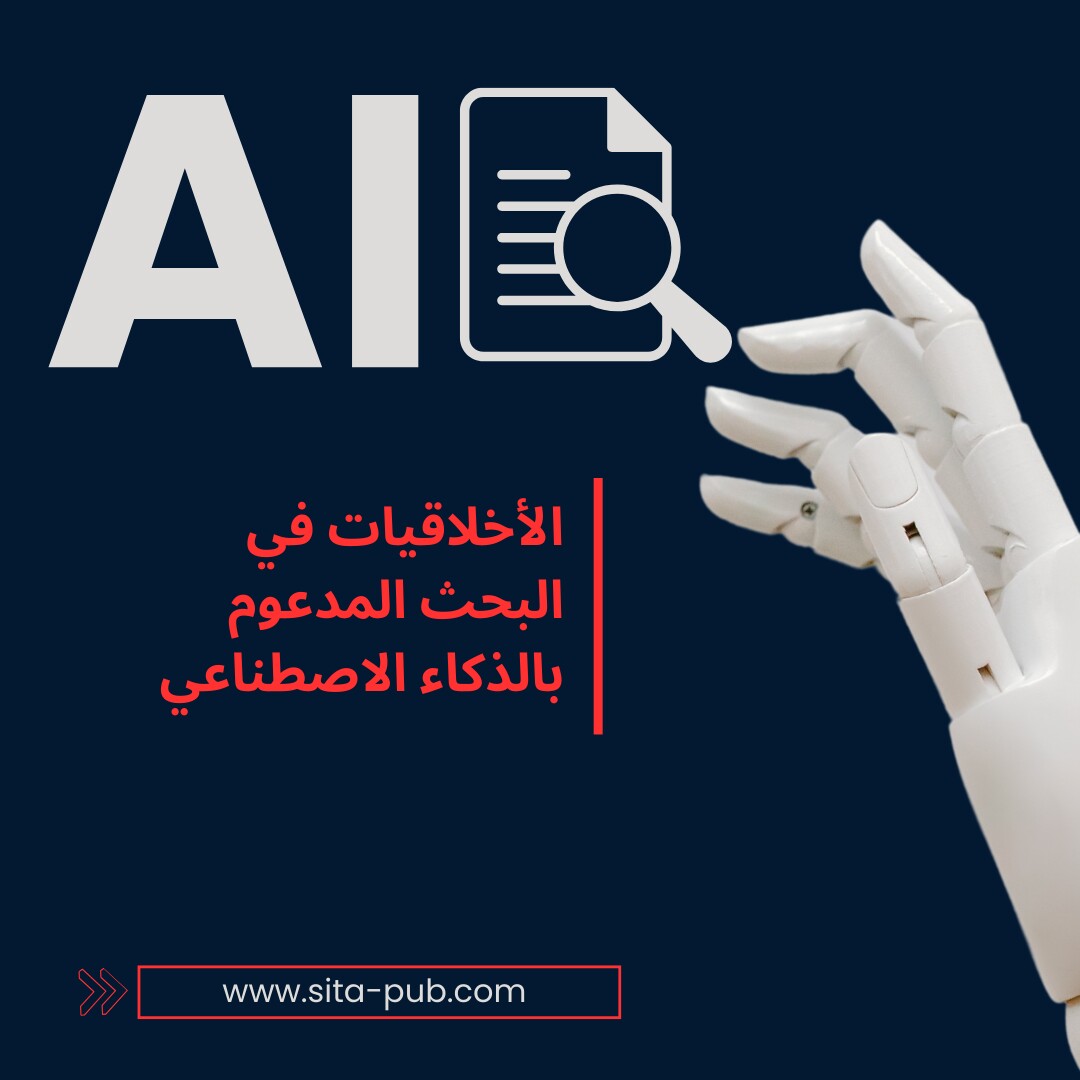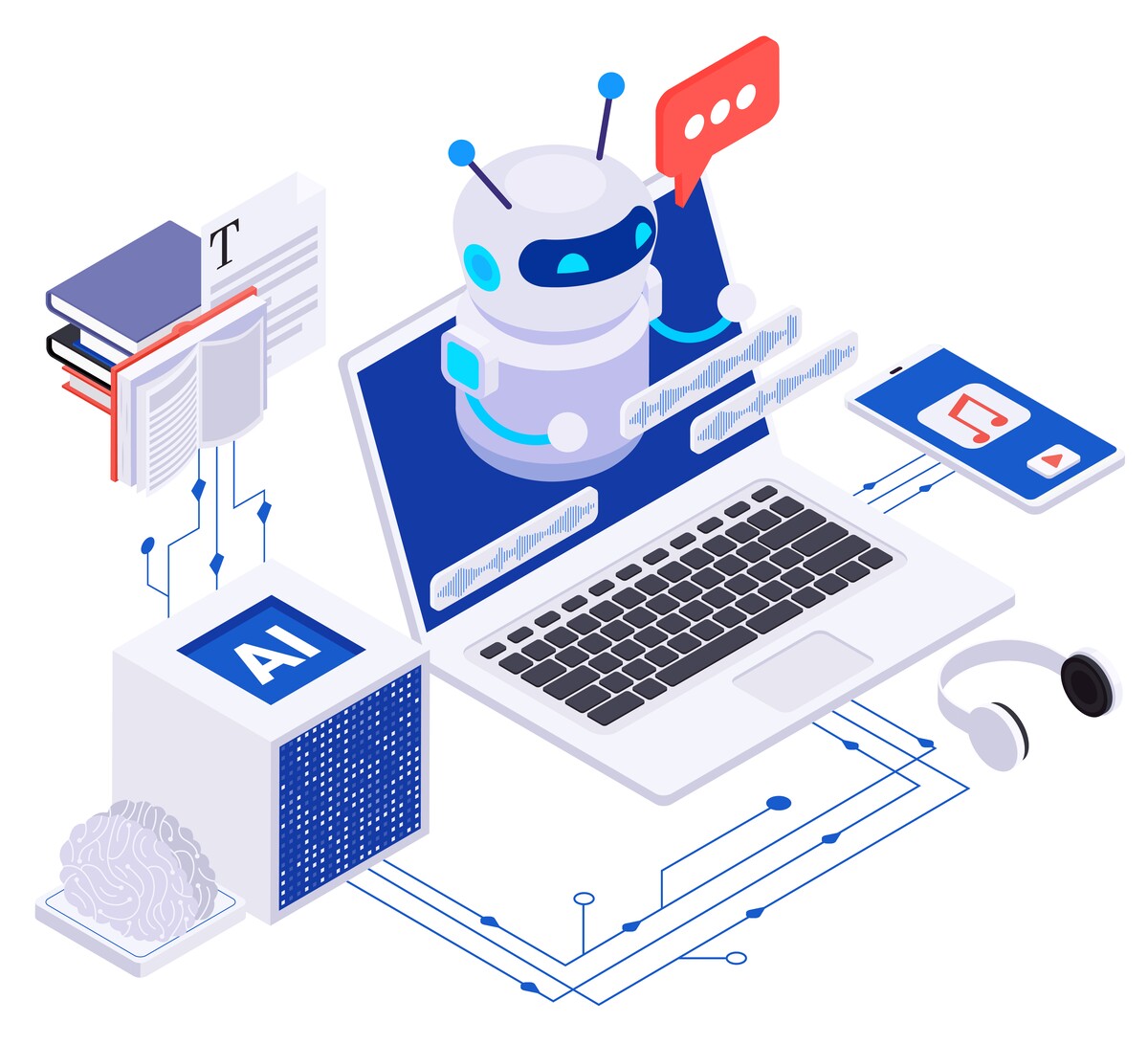الأخلاقیات فی البحث المدعوم بالذکاء الاصطناعی


الذکاء الاصطناعی (AI) یعنی الأنظمه التی یمکنها التفکیر والتعلم مثل البشر. یمکن لهذه الأنظمه أن تنظر فی البیانات، وتکتشف الأنماط، وتُتخذ القرارات، وتساعد الباحثین فی مجالات مختلفه. یمکن للذکاء الاصطناعی التعامل مع المعلومات بشکل أسرع وأحیانًا بدقه أکبر من البشر.

أصبحت أدوات الذکاء الاصطناعی شائعه فی البحث لأنها تستطیع التعامل بسرعه مع کمیات کبیره من البیانات. یستخدم الباحثون هذه الأدوات لتکون أکثر کفاءه، ولارتکاب أخطاء أقل، ولإیجاد رؤى جدیده یصعب اکتشافها یدویًا. لقد جعل نمو البیانات والتحسینات فی التعلم الآلی الذکاء الاصطناعی أمرًا مهمًا فی المدارس والشرکات. باستخدام الذکاء الاصطناعی، یمکن للباحثین أن یقضوا وقتًا أطول فی التحلیل والإبداع بدلاً من مجرد إداره البیانات.
التلخیص: یمکن للذکاء الاصطناعی تلخیص النصوص الطویله بسرعه، مما یساعد الباحثین على فهم النقاط الرئیسیه دون الحاجه لقراءه کل شیء.

تحلیل البیانات باستخدام الذکاء الاصطناعی: یمکن للذکاء الاصطناعی تحلیل البیانات المعقده واکتشاف الأنماط التی یصعب رؤیتها یدویًا، وهو أمر مفید فی مجالات مثل الوراثه والعلوم الاجتماعیه.

النمذجه التنبؤیه فی الرعایه الصحیه: یمکن للذکاء الاصطناعی التنبؤ بالنتائج بناءً على المعلومات السابقه. یساعد هذا الأطباء على التنبؤ بالمشکلات وتعدیل العلاجات. کما یساعد فی التنبؤ بتأثیرات تغیر المناخ.

تطبیقات معالجه اللغه الطبیعیه: یساعد الذکاء الاصطناعی فی فهم اللغه البشریه بشکل أفضل. یمکن للباحثین تحلیل النصوص، وإجراء تحلیل المشاعر، وأتمته مهام الکتابه، مما یسهل مراجعات الأدب.

تحلیل الصور والفیدیو: فی التصویر الطبی، یمکن للذکاء الاصطناعی تفسیر الصور واکتشاف المشاکل، مما یحسن دقه التشخیص. یمکنه اکتشاف الأمراض فی الأشعه أسرع من الخبراء البشر.

التجارب المؤتمته: یمکن للذکاء الاصطناعی تصمیم وتشغیل التجارب بشکل مستقل، مع تحسین الظروف وجمع البیانات فی الوقت الفعلی. یسمح ذلک للباحثین باختبار الأفکار بشکل أکثر کفاءه.

التخصیص فی التعلیم: یقوم الذکاء الاصطناعی بتخصیص المحتوى التعلیمی لیناسب أسالیب التعلم الفردیه، مما یحسن تفاعل الطلاب ونتائجهم.

تحلیل الشبکات الاجتماعیه باستخدام الذکاء الاصطناعی: یقوم الذکاء الاصطناعی بدراسه التفاعلات فی الشبکات الاجتماعیه لفهم العلاقات والتأثیرات، مما یوفر رؤى حول الرأی العام واستراتیجیات التسویق.

المحاکاه والنمذجه: یمکن للذکاء الاصطناعی محاکاه الأنظمه المعقده، مما یساعد الباحثین على فهم النماذج الاقتصادیه والتفاعلات البیئیه، مما یؤدی إلى تنبؤات أفضل.

الروبوتات المدفوعه بالذکاء الاصطناعی: تساعد الروبوتات المدعومه بالذکاء الاصطناعی فی إجراء التجارب وجمع البیانات، حتى فی الحالات الخطره. وهذا یوسع إمکانیات البحث من خلال أداء المهام التی تکون غیر آمنه للبشر.


مع تزاید استخدام الذکاء الاصطناعی فی البحث، یثیر ذلک العدید من الأسئله الأخلاقیه المهمه:
التحیز والعداله: یمکن للذکاء الاصطناعی أن یعکس التحیزات الموجوده فی بیاناته. یجب على الباحثین التأکد من تدریب أدواتهم على بیانات متنوعه لتعزیز العداله وتجنب النتائج غیر العادله.
الشفافیه: یجب على الباحثین شرح کیفیه استخدام أدوات الذکاء الاصطناعی بوضوح، بما فی ذلک الخوارزمیات ومصادر البیانات المستخدمه. هذا یبنی الثقه فی عملیه البحث.
المخاوف المتعلقه بالخصوصیه: یستخدم الذکاء الاصطناعی غالبًا مجموعات بیانات کبیره تحتوی على معلومات حساسه. یجب على الباحثین حمایه هذه البیانات واتباع القوانین مثل اللائحه العامه لحمایه البیانات (GDPR) لضمان أمان معلومات المشارکین.
المسؤولیه: قد یکون من الصعب تحدید المسؤول عن النتائج التی یولدها الذکاء الاصطناعی. یجب أن یکون لدى الباحثین خطط للتعامل مع الأخطاء أو الأضرار التی قد یسببها الذکاء الاصطناعی.
الموافقه المستنیره: یجب أن یفهم المشارکون فی أبحاث الذکاء الاصطناعی کیفیه استخدام بیاناتهم. من الضروری وجود عملیات موافقه واضحه للحفاظ على المعاییر الأخلاقیه.
تأثیر الذکاء الاصطناعی على التوظیف: قد یؤدی أتمته المهام البحثیه إلى فقدان وظائف. یجب على الباحثین التفکیر فی کیفیه تأثیر الذکاء الاصطناعی على الوظائف فی مجالاتهم والتأثیر الاجتماعی الأوسع.
إرشادات المجلات لاستخدام الذکاء الاصطناعی: تختلف قواعد المجلات بشأن الذکاء الاصطناعی. یجب على الباحثین مراجعه هذه القواعد وشرح استخدامهم للذکاء الاصطناعی فی أعمالهم بوضوح.
بینما یغیر الذکاء الاصطناعی البحث، فإن التعامل مع هذه القضایا الأخلاقیه أمر بالغ الأهمیه. من خلال الترکیز على العداله، والشفافیه، والخصوصیه، والمساءله، والموافقه المستنیره، والتأثیر الاجتماعی، یمکن للباحثین استخدام الذکاء الاصطناعی بشکل مسؤول. یعزز هذا النهج الاکتشافات الجدیده مع ضمان الحفاظ على المعاییر الأخلاقیه. یمکن أن یحسن استخدام الذکاء الاصطناعی فی البحث بشکل کبیر طریقه حلنا للمشکلات، لکن یجب القیام بذلک بحذر وأخلاقیه.
إذا کنت بحاجه إلى مساعده لضمان أن ورقتک البحثیه أصلیه وخالیه من الانتحال، فنحن هنا للمساعده! اتصل بنا للحصول على خدمات فحص الانتحال وإعاده الصیاغه المتخصصه لتلبیه احتیاجاتک الأکادیمیه. فریقنا ملتزم بالحفاظ على نزاهه عملک مع تعزیز الوضوح والجوده. لا تعرض سمعتک الأکادیمیه للخطر—اتصل بنا الیوم لضمان أن ورقتک البحثیه تفی بأعلى المعاییر.
إذا کان لدیک أی أسئله، استفسارات، أو ترغب فی معرفه المزید عن خدماتنا، فلا تتردد فی التواصل معنا. فریقنا المخصص مستعد لمساعدتک.